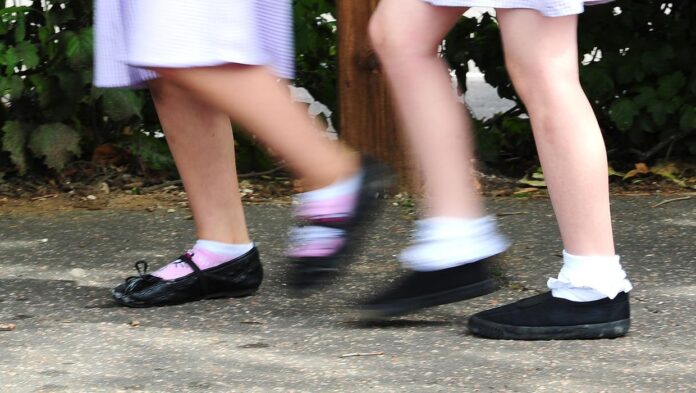Stormont’s Education Committee has been told that progress is being made in implementing the action points identified by the Fair Start report.
he report, published earlier this year by the Expert Panel on Educational Underachievement, is expected to cost around £73m a year once an agreed programme is up and running.
The Department of Education said it has set aside £4m so far to get the work towards addressing the imbalance in achievement across the system under way.
“A programme board has been set up, and has already met three times,” Department official Alison Chambers told MLAs.
“A public information campaign has also been launched and is aimed at instilling hope and inspiration in our young people.”
Research has shown a huge difference between the academic achievement between pupils eligible for free school meals and others, and a low achievement of Protestant boys in particular.
Dr Noel Purdy, who led the expert panel, said the main priority now must be to bring the actions included in the plan to fruition.
Close
“This is different from other reports,” said Dr Purdy.
“We were asked not just to write a series of recommendations but a costed action plan. That’s much harder than writing broad recommendations.
“The key now is implementation.”
The report, commissioned as part of the New Decade, New Approach deal, identified eight major areas where improvement was needed in the education system and included 13 recommendations.
It urged driving forward professional training for teachers, increased support for the professional learning and wellbeing of school leadership and that interdepartmental collaboration and delivery must be ensured.
Sinn Fein MLA Pat Sheehan said success will depend on cross departmental co-ordination.
“But this has been one of the big weaknesses of the Executive, that ministers tend to operate in silos,” he warned.
Department of Education official Dale Heaney to the committee the seriousness of the recommendations will prompt action.
“I think the reducing educational disadvantage programme offers that opportunity,” he said.
The report said the bulk of the money required should be aimed at redirecting the focus of underachievement to Early Years education.
“The annual cost once the programme is established sits around £73m per annum and I think that’s a more reliable use going forward,” said Mr Heaney.
Joyce Logue, a member of the Expert Panel, said Early Years had been a key focus of the report.
“The panel were in no doubt that Early Years was crucial,” she said.
“Money spent at the early stage can have a positive effect on educational achievement and employment prospects.”
Dr Purdy added that “for many years there have been disparities between statutory and non statutory provision in Early Years”.
“Addressing the issue is a hugely complex task which won’t be achieved overnight, but we owe it to our children that, whatever the setting they are in, that they receive parity of provision,” he said.
“This will stand or fall by its monitoring and it being agreed at its highest level,” added panel member Jackie Redpath.
“If we don’t get all that collective action right, concentrated in the right places and committed to the long term, we’re not going to get it.
“Around 87% of a child’s waking hours are spent in an environment outside of school. It remains important to look at other areas where children spend their lives.”
Also appearing before the committee, MLA Kellie Armstrong addressed the progress of her private member’s bill on integrated education.
The Bill aims to reform and meet the growing demand for integrated education, giving it the same support as controlled and maintained schools, allowing for its promotion and provision.
But the Alliance MLA faced concerns from members as the bill enters committee stage.
DUP member Robin Newton said he feared it would “elevate the views of one sector above the views of others”.
He added that he expects the bill will be “subject to legal challenge after legal challenge”.
He was backed by DUP colleague Diane Dodds.
“The presumption of this is to promote integrated education ahead of other sectors and I’m worried that this will not leave a level playing field,” she said.
Roisin Marshall, chief executive of the Northern Ireland Council for Integrated Education, told the committee integrated education needs to be supported to meet parental demand.
“To increase the sector by 1%, roughly 3,500 student places would need to be created per year,” she said.
“The department said it would bring forward any suggested amendments.”
Ms Armstrong admitted there were clauses in her bill “that can be improved on” but was keen to hear the committee’s scrutiny.
“I appreciate the department has made some assertions, though I don’t agree with many of them,” she said.
“But our baby has been handed over to you for scrutiny. It is not intended to cause difficulties for anyone. We’re not opposed to meeting anyone to discuss any issues.”
Doubts remain over whether the bill can be advanced in the current Assembly term ahead of next year’s Stormont elections.
Download the Belfast Telegraph App
Get quick and easy access to the latest Northern Ireland news, sport, business and opinion with the Belfast Telegraph App.
![]()
![]()
Credit: Source link










